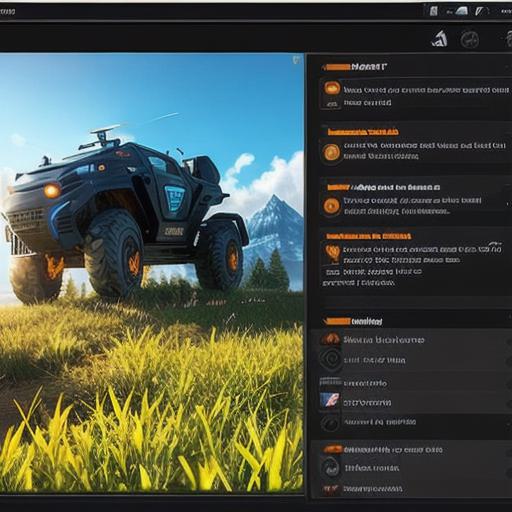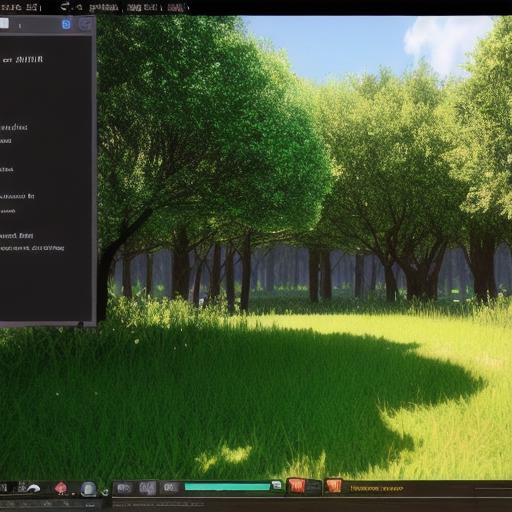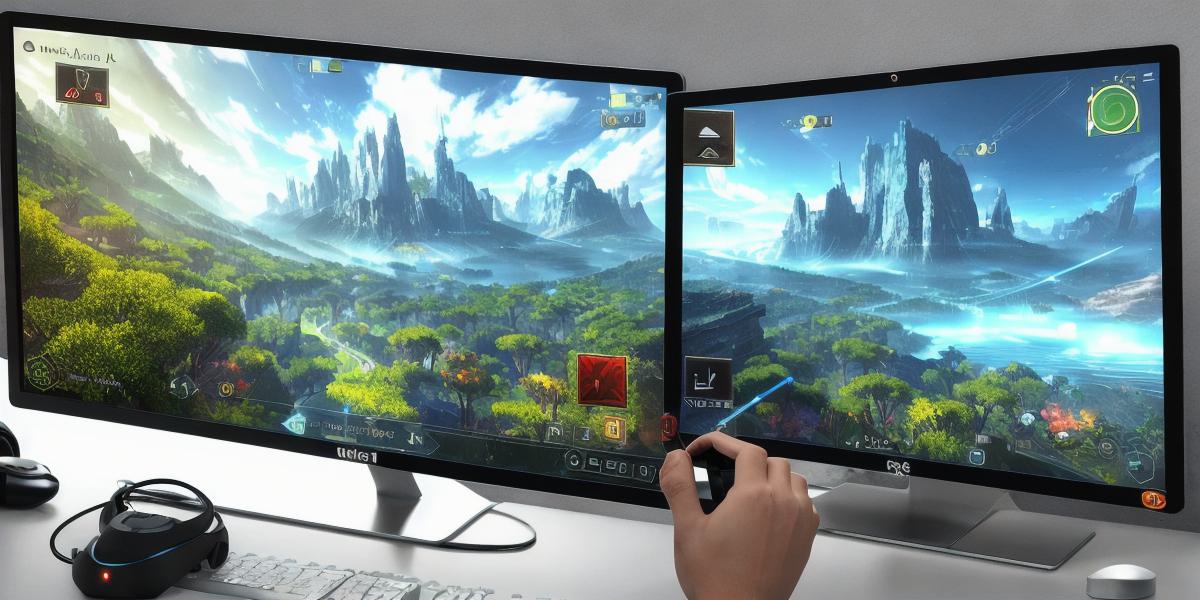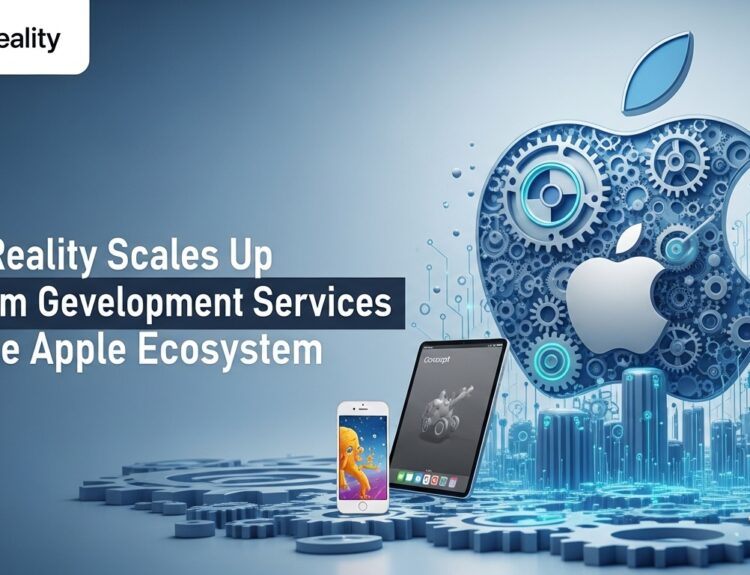The Rise of AI Tools in Game Development: Enhancing Player Experience and Boosting Sales
With the rapid advancements in artificial intelligence (AI) technology, it’s no surprise that game development is one of the industries that have been quick to adopt these cutting-edge tools. In this article, we will delve into the world of AI in game development, exploring the best AI tools available and how they can be used to enhance player experience and boost sales.
Introduction
The gaming industry has come a long way since its inception. From simple 2D graphics to immersive virtual reality (VR) experiences, games have evolved into a multi-billion dollar industry with millions of players around the world. However, as the complexity of games increases, so does the need for innovative solutions that can help game developers create engaging and interactive experiences.
This is where AI tools come in. AI technologies such as machine learning, natural language processing, and computer vision are being used to create intelligent systems that can adapt to player behavior, improve gameplay, and drive revenue growth. In this article, we will explore the top AI tools for game development, their benefits, and how they can be used to enhance player experience and boost sales.
- Machine Learning in Game Development
Machine learning is a type of AI that enables software applications to become more accurate in predicting outcomes without explicit programming. In game development, machine learning is being used to create intelligent systems that can learn from player behavior and adapt to the changing dynamics of the game.
One example of machine learning in game development is the use of reinforcement learning. Reinforcement learning is a type of machine learning that involves training an agent to make decisions based on feedback from its environment. In game development, reinforcement learning can be used to train game agents to make intelligent decisions based on player behavior.
For example, DeepMind’s AlphaGo, which famously beat world champion Go player Lee Sedol in 2016, was a machine learning algorithm that used reinforcement learning to improve its gameplay over time. By analyzing millions of Go games and learning from the moves made by human players, AlphaGo was able to become an expert-level Go player in just a few months.
Another example of machine learning in game development is the use of anomaly detection. Anomaly detection involves identifying unusual patterns or behaviors in data that may indicate a problem or opportunity. In games, anomaly detection can be used to identify players who are cheating or exploiting glitches in the game, which can help maintain a fair and enjoyable gaming experience for all players.
- Natural Language Processing (NLP) in Game Development
NLP is another type of AI that is being used in game development to improve player interaction and engagement. NLP involves training machines to understand and interpret human language, allowing them to interact with players in a more natural and intuitive way.
One example of NLP in game development is the use of chatbots. Chatbots are computer programs that can simulate conversation with human users through messaging platforms or websites. In games, chatbots can be used to provide players with helpful information about the game, answer questions, and even guide them through the gameplay process.
For example, in the popular game "The Sims," chatbots are used to help players manage their sims’ lives, providing information about tasks that need to be completed and suggesting activities for the sims to do. Chatbots can also be used to provide personalized recommendations based on player behavior, such as suggesting new games or content based on a player’s previous play habits.
Another example of NLP in game development is the use of sentiment analysis. Sentiment analysis involves analyzing text data, such as player reviews or social media posts, to determine the overall sentiment of the text. In games, sentiment analysis can be used to identify areas where players are dissatisfied and make improvements to improve the gaming experience.
- Computer Vision in Game Development
Computer vision is a type of AI that involves training machines to interpret and understand visual data, such as images and videos. In game development, computer vision can be used to create more immersive and realistic game environments, as well as improve player interaction and engagement.
One example of computer vision in game development is the use of virtual reality (VR) technology. VR involves creating a simulated environment that players can interact with using specialized headsets or other devices. Computer vision can be used to create more immersive VR experiences by allowing players to see and interact with objects in the game world.

For example, the popular VR game "Beat Saber" uses computer vision to track player movements and translate them into in-game actions. As players swing their arms to match the rhythm of the music, computer vision algorithms interpret the movements and translate them into virtual sword strikes on virtual blocks.
Another example of computer vision in game development is the use of augmented reality (AR) technology. AR involves overlaying digital information onto the real world, allowing players to interact with virtual objects and environments in a more natural and intuitive way. Computer vision can be used to create more interactive AR experiences by enabling players to see and interact with virtual objects in their physical environment.
- AI Tools for Game Analytics
Game analytics is the process of collecting and analyzing data about player behavior and game performance, with the goal of improving the gaming experience. AI tools can be used to automate many aspects of game analytics, making it easier for game developers to gather and analyze data.
One example of an AI tool for game analytics is predictive modeling. Predictive modeling involves using machine learning algorithms to identify patterns in player behavior and make predictions about future behavior. This can help game developers anticipate player needs and preferences, and make changes to the game that will improve player engagement and retention.
Another example of an AI tool for game analytics is sentiment analysis. Sentiment analysis involves using machine learning algorithms to analyze text data, such as player reviews or social media posts, to determine the overall sentiment of the text. This can help game developers identify areas where players are dissatisfied and make improvements to improve the gaming experience.
Finally, AI tools can also be used for real-time game performance monitoring. Real-time monitoring involves continuously collecting data about game performance and using that data to make real-time adjustments to the game. This can help optimize game performance and ensure a smooth and enjoyable playing experience for all players.
Summary
In conclusion, AI tools are becoming increasingly important in the world of game development. From machine learning and natural language processing to computer vision and game analytics, these tools can be used to create more engaging and immersive game experiences, drive revenue growth, and improve overall player satisfaction. As AI technology continues to evolve, we can expect to see even more innovative solutions for game development in the future.
FAQs
- What is machine learning?
- Machine learning is a type of artificial intelligence that involves training machines to learn from data and make predictions or decisions without being explicitly programmed.
- How does reinforcement learning work in games?

- Reinforcement learning involves training an agent to make decisions based on feedback from its environment. In games, the agent can be trained to make intelligent decisions based on player behavior, such as choosing the best path through a level or selecting the most effective weapon.
- What is sentiment analysis?
- Sentiment analysis involves using machine learning algorithms to analyze text data, such as player reviews or social media posts, to determine the overall sentiment of the text.
- How can AI be used for game analytics?
- AI can be used for game analytics in a variety of ways, including predictive modeling, real-time performance monitoring, and sentiment analysis. These tools can help game developers gather and analyze data more efficiently, and make informed decisions about how to improve the gaming experience.


